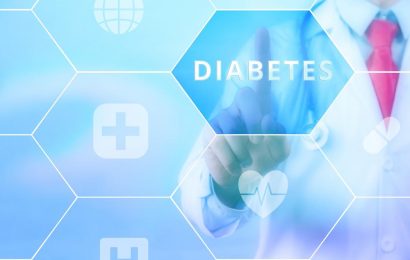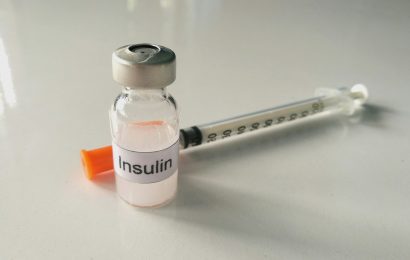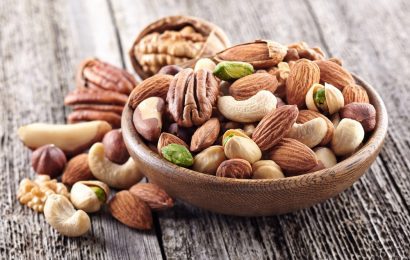Soy is about the most controversial food there is. Dr. Mark Hyman titled a blog entry “How Soy Can Kill You and Save Your Life.” He was just kidding. Still, soy brings up issues people with diabetes should know about.
Soy starts out as a bean, and beans are about the healthiest foods there are. But soy foods you buy are usually processed. They’re made into oils, protein powders, and other additives. Some of these aren’t good for you at all.
Some experts like Jenny Ruhl at Blood Sugar 101 say that even whole soy can hurt you. “Isoflavones in soy foods…cause people to become hypothyroid. Since lowered thyroid raises blood glucose and leads to weight gain, lowering your thyroid by eating too much soy is the last thing anyone with diabetes needs to do to themselves.”
On the beneficial side, in the Shanghai Women’s Health Study, women who ate the most soy were only half as likely to develop Type 2 diabetes as those who ate the least soy.
That doesn’t mean soy prevents diabetes, but beans do have a lot of vitamins and minerals. On our Web site, Amy Campbell wrote that “Soybeans are…an excellent source of minerals (iron, manganese, potassium, magnesium), certain vitamins, and omega-3 fatty acids.” She says that soy is a good source of protein and fiber, and fiber is a wonder food for diabetes.
Unfortunately, soy also contains a lot of phytates. These are chemicals that bind to minerals and make them harder to absorb.
Discovery Health goes over many concerns people have about soy, including that men who eat soy become effeminate, it causes breast cancer, it causes fertility problems, and it’s bad for infants. The conclusion in every case is that small amounts won’t hurt you very much.
An interesting view comes from Authority Nutrition, the blog of Kris Gunnars, an Icelandic medical student. Gunnars writes: “For every study showing harm [from soy], there is another one showing beneficial effects… However, in every study I looked at that showed beneficial effect, the study was either sponsored by the soy industry, or the authors had some kind of financial ties to the soy industry.” So pro-soy science needs to be looked at with caution.
In a big potential benefit for people with diabetes, isoflavones seem to lower blood pressure. They do this by encouraging the body to produce nitric oxide. This helps to open up blood vessels.
Much soy controversy focuses on isoflavones. Soy is full of these organic compounds, very similar to the female hormone estrogen. Some have found that isoflavones stimulate breast tissue growth, which led to increased cancer rates in mice.
But human studies have found no link between isoflavones and breast cancer. They may even be protective. These estrogen-like compounds are also rumored to cause problems with fertility, but the evidence is not strong for that.
Some worry about infant development on soy formulas. The estrogen-like isoflavones might cause early puberty and breast growth in girl babies. They might also make people fat.
Dr. Hyman says that breast milk is best, but if you have to use formula, don’t worry much about soy versus dairy. However, others are more concerned.
Soy and diabetes
Besides their supposed blood-pressure-lowering effects, isoflavones have been reported in some studies to lower blood glucose and insulin levels. The latest studies reported here don’t confirm that, but research is ongoing.
Bottom-lining it
Most authorities I read agree that whole soy is OK, but processed soy usually isn’t. And processed soy products are added to huge numbers of packaged foods. Most experts also agree that fermented soy foods like tempeh and miso are healthiest of all.
I personally believe tofu, the soft white solid soy protein, is good for most people in moderation, but maybe only if it’s organic. I know my body reacts differently to organic and non-organic tofu, even if I don’t know which it was before I ate it.
The purest form of soy is edamame — soybeans usually served in their pod. They’re good in salads or by themselves. So thumbs up for organic edamame and tofu, tempeh, and miso.
All the soy-added products you see in supermarkets might better be avoided. One reason for that is that most soy grown in the US (world capital of soy farming) is heavily genetically modified (GMO).
Much of this soy is Monsanto’s Roundup Ready soybeans, which are made to be heavily sprayed with herbicides and pesticides.
Dr. Hyman sums up: “”Stay away from [soy foods] including soy protein concentrates or isolates, hydrolyzed or textured vegetable protein, hydrogenated soybean oil, non-organic sources of soy, and soy junk food like soy cheese and ice cream.”
And Dr. Oz warns about “Frankensoy” foods like soy hot dogs and chicken strips. Avoid them, he says.
You can read a thorough review by the Agency for Health Quality and Research of the best science on soy here: “Effects of Soy on Health Outcomes.”




